Charlie Shockley, LCSW
Charlie is the founder of Kind Recovery and an ally to the Athens recovery community, striving to amplify compassionate care.
Specializing In:
Clients whose co-occurring substance use and mental health disorders are rooted in trauma.
Treating:
Substance Use Disorders (drugs/narcotics, alcohol)
PTSD, Complex Trauma, Adverse Childhood Experiences
I treat all types of trauma, from shock trauma that we normally associate with military veterans (PTSD) to the complex trauma that results from exposure to childhood abuse, toxic stress, attachment injuries, and dysfunctional relationships. Learn more.
Mood Disorders (Depression, Anxiety)
Using:
Motivational Interviewing (MI) is a treatment modality designed to help clients move through the process of change, rooted in the belief that clients are capable and experts in their experience. People tend to think of change as an on-off switch and our culture constantly promotes this idea. The truth is, that change is a process that includes emotional and behavioral states like ambivalence, preparation, action, relapse, and maintenance. Motivational interviewing focuses on increasing your internal motivation to keep moving through the process. It is an evidence-based treatment modality for treating substance use disorder and other behavioral dilemmas.
Acceptance and Commitment Therapy (ACT) is an evolution of Cognitive Behavioral Therapy (CBT). This treatment focuses on behavior change as the catalyst to recovery and adds Eastern traditions such as mindfulness, acceptance, and meditation practices to enhance traditional CBT. The goal of ACT is to promote psychological flexibility, or the ability to cope healthily, with stressors and is an evidence-based treatment for numerous conditions including anxiety and depression.
Eye Movement Desensitization and Reprocessing (EMDR) is a clinically-proven method to treat trauma, PTSD, C-PTSD, adverse childhood experiences, or toxic stress. EMDR understands trauma as improperly stored memories and uses bilateral stimulation (eye movements or tapping) to recreate the brain’s natural mechanism of filing away experiences in long-term memory. This normally happens when we are in REM sleep and our eyes move back and forth, essentially processing the day’s events. With EMDR we RE-process traumatic memories so they can be filed away adaptively and reduce distress.
I am a person in long-term recovery who understands the suffering that comes from feeling trapped in the cycle of abuse and withdrawal. For me, addiction came as the result of an injury and doctor-prescribed pain medications. In recovery, I learned to recognize that other environmental factors were responsible for making me vulnerable to this disease. The author Glennan Doyle, describes recovery as “one long remembering, that I’m still here.” These words deeply resonate with me, and I can help you rediscover the you that feels safe, connected, and empowered without substances. I created Kind Recovery to help spread the message of kindness, love, and compassion for all who suffer from a substance use disorder. There is a way out, and it’s much much less painful than staying in.
Education & Experience
I have worked for most of the local for-profit, outpatient addiction treatment programs in Athens. This first-hand experience has been invaluable in educating me on what works and what doesn’t. I’ve also had the distinct pleasure of being mentored by two of Athens’ most experienced addiction counselors. Combined, they have 80+ years of experience, and I’m truly grateful to benefit from their wisdom.
I earned my masters from the University of Georgia and am a Licensed Clinical Social Worker. I am trained in several therapeutic approaches including Motivational Interviewing, Acceptance and Commitment Therapy, and Somatic and Attachment Focused EMDR. Motivational Interviewing is designed to assist you in moving through the process of change. Acceptance and Commitment Therapy helps you stay engaged with what is meaningful and feel less burdened by symptoms and stressors. Somatic and Attachment Focused EMDR is a treatment designed to help you engage your brain's natural healing process and recover from childhood wounds or traumatic events that feel present in your daily life. These wounds often manifest as feelings of unworthiness, chronic depression, anxiety, or shame.
What to Expect From Me
Transparency: I often use mindful attention to my own internal reactions and our way of relating to each other to bring subconscious feelings and processes into conscious awareness. It’s important to me to create a space where people feel they don’t have to hide.
Laughter: Just as negative internal experiences are a normal part of being human, so are the silly parts. I often co-celebrate goofy moments with clients in session. Though our culture may place perfection, control, success, and power on a pedestal; I just don’t believe that’s what we’re wired for. Authentic connection is our real evolutionary advantage and connection demands we set our egos aside.
Goal-Directed: We will identify your goals together and I will help hold you accountable to those goals. I believe the best therapy is specific and intentionally moves towards resolving your suffering. I have a way of being direct without being punitive or shaming. Maybe that’s because there’s truly nothing you can do to shake my faith in you. We are all just humans in our process of change.
A Little Buddhist: I don’t identify as a Buddhist or consider it my religion. I honor all religious and spiritual beliefs and have no intention of altering yours. However, I have found that many Buddhist traditions like mindfulness, meditation, non-attachment, and impermanence are highly effective tools in recovering from substance use.


